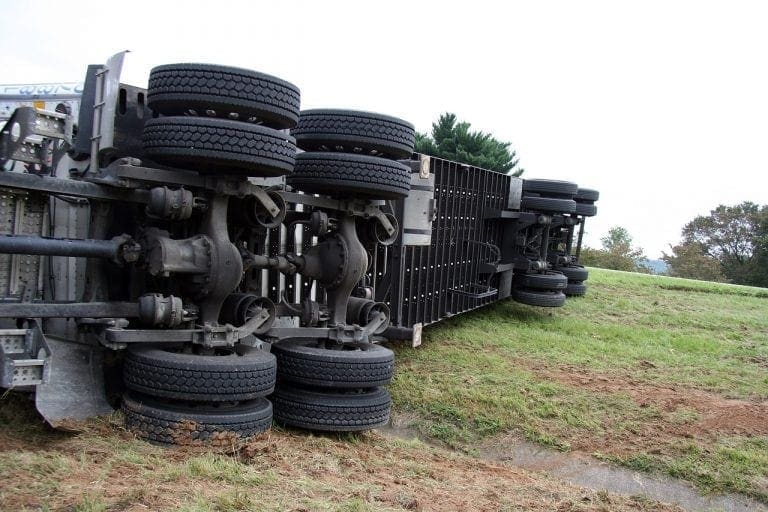Steps to Take After a Personal Injury for Full Rehabilitation and Compensation

Suffering a personal injury can be a traumatic experience, often leaving both physical and emotional scars. However, amidst the pain and confusion, it’s crucial to take decisive steps toward recovery and ensure you receive the compensation you deserve.
Whether it’s a car accident, workplace injury, or slip and fall incident, knowing what to do next is essential for your well-being. In this article, we’ll explore steps to take after a personal injury, from seeking medical attention to pursuing compensation with legal assistance.
Seek Immediate Medical Attention
After sustaining a personal injury, whether it’s a minor bruise or a more severe trauma, seeking immediate medical attention is crucial. Following a major accident, individuals typically experience a surge in adrenaline and shock. According to Trans4mind, this natural physiological reaction can temporarily mask pain and injuries, potentially causing delayed symptoms.
Even injuries that initially seem minor could have underlying complications that might worsen without proper medical treatment. Medical professionals can assess the extent of your injuries, provide necessary treatment, and document your condition through medical records. These records serve as crucial evidence when seeking compensation later on.
Additionally, delaying medical attention can not only prolong your recovery but also weaken your case for compensation. Insurance companies may argue that your injuries weren’t severe enough to warrant compensation if you didn’t seek immediate treatment.
Report the Incident
Regardless of the type of personal injury you’ve sustained, reporting the incident to the relevant authorities or supervisors is vital. For instance, in cases of car accidents, filing a police report is essential for documenting the details of the incident and establishing liability.
Forbes highlights that while you’re not obligated to speak to the police, it might benefit you to share your perspective for the police report. It’s crucial not to admit fault, either inadvertently or deliberately, and to stick solely to the facts of the incident. Before the police leave, make sure to get their names, badge numbers, and the police report number if you can.
Similarly, in workplace injuries, informing your employer ensures that the incident is officially recorded, which is necessary for filing a workers’ compensation claim. Reporting the incident promptly creates a clear record of what happened and who was involved, laying the groundwork for filing a claim.
Gather Evidence
Collecting evidence from the scene of the incident strengthens your case and increases your chances of receiving fair compensation. This evidence can include photographs of the scene, statements from witnesses, and any physical evidence, such as damaged property or defective equipment.
Additionally, documenting your injuries through photographs can provide visual evidence of the extent of your harm. The more evidence you gather, the better equipped you’ll be to support your claim and demonstrate the impact of the injury on your life.
Keep Detailed Records
Maintaining detailed records of all medical treatments, expenses, and other costs related to the injury is essential. This includes keeping track of medical bills, receipts for medications, and invoices for any additional expenses incurred. For example, transportation to medical appointments or home modifications for accessibility.
These records serve as proof of your financial losses and can help calculate the total amount of compensation you’re entitled to. Additionally, keeping a journal to record the daily impact of the injury on your life can provide further documentation of your damages.
Consult Rehabilitation Specialists
Depending on the nature and severity of your injury, rehabilitation specialists such as physical therapists, occupational therapists, or chiropractors can play a crucial role. These professionals can create personalized treatment plans tailored to your specific needs, helping you regain strength, mobility, and function.
Following their guidance diligently and attending therapy sessions regularly can significantly improve your chances of a full and speedy recovery. Moreover, rehabilitation specialists can document your progress. This can be used as evidence of the ongoing impact of the injury on your life when seeking compensation.
Consult a Local Lawyer
Navigating the legal complexities of personal injury claims can be challenging, especially when dealing with insurance companies or negligent parties. Consulting with a local lawyer who specializes in personal injury cases can provide invaluable guidance and representation throughout the process.
Springs Law Group notes that a knowledgeable lawyer can assess the strength of your case and advocate for your rights in court. A local lawyer, well-versed in your jurisdiction’s laws, offers tailored advice, safeguarding your rights at every step of the legal journey.
For instance, if you’re in Colorado, consulting with a lawyer who understands the nuances of Colorado’s personal injury laws can be particularly beneficial.
Colorado uses a modified comparative fault system, which means that your compensation may be lowered if you are partially to blame for the accident. However, Justia notes that if you’re found to be 50% or more at fault, you will be barred from recovering any damages. A local lawyer experienced in Colorado law can navigate these complexities and maximize your chances of receiving fair compensation.
In Colorado, the legal landscape can vary significantly from city to city. This makes it essential to choose a lawyer familiar with the specific dynamics of your locality. Take, for instance, Colorado Springs, nestled at the foot of the majestic Rocky Mountains. As one of the state’s largest cities, Colorado Springs presents its own unique set of challenges and opportunities in personal injury cases.
Factors such as local ordinances, traffic patterns, and even cultural norms can influence how personal injury cases are handled. A Colorado Springs personal injury attorney understands these intricacies and can tailor their approach to suit the local legal environment.
By choosing a lawyer with local expertise, you can ensure that your rights are protected and that you receive the compensation you deserve.
Pursue Compensation
Once you’ve gathered evidence, consulted with rehabilitation specialists, and sought legal advice, it’s time to pursue compensation for your injuries. This may involve negotiating a settlement with the insurance company representing the at-fault party or filing a lawsuit to seek damages in court.
Your lawyer will guide you through this process, advocating for your best interests and working to secure the maximum compensation possible.
While the legal process may take time and require patience, pursuing fair compensation is essential. This is because it helps cover your medical expenses, lost wages, and other damages resulting from the injury.
By staying persistent and proactive, you can increase your chances of obtaining the financial recovery you deserve.
FAQs
What are the remedies for personal injury?
Remedies for personal injury include compensation for medical expenses, lost wages, pain and suffering, and property damage. Legal options may involve negotiating a settlement with insurance companies or pursuing a lawsuit for damages in court.
How do you treat accident injuries?
Accident injuries are typically treated with a combination of rest, medication, physical therapy, and sometimes surgery. Prompt medical attention, proper diagnosis, and adherence to treatment plans are essential for optimal recovery and rehabilitation.
How do I file a personal injury lawsuit in Colorado?
To file a personal injury lawsuit in Colorado, gather evidence, including medical records and accident reports. Then, submit a complaint to the appropriate court, ensuring it meets the state’s statute of limitations and procedural requirements. Consider consulting a lawyer for guidance.
In conclusion, navigating the aftermath of a personal injury requires a strategic approach encompassing medical attention, legal guidance, and diligent documentation. Seeking immediate medical care, reporting the incident, and gathering evidence are crucial initial steps.
Consulting with rehabilitation specialists and local lawyers enhances the rehabilitation process and strengthens your legal position. Remember, pursuing fair compensation is not just about financial recovery. It is also about holding negligent parties accountable and securing the support needed for a full recovery.
By taking decisive action and seeking appropriate assistance, you can navigate the complexities of personal injury claims with confidence.









